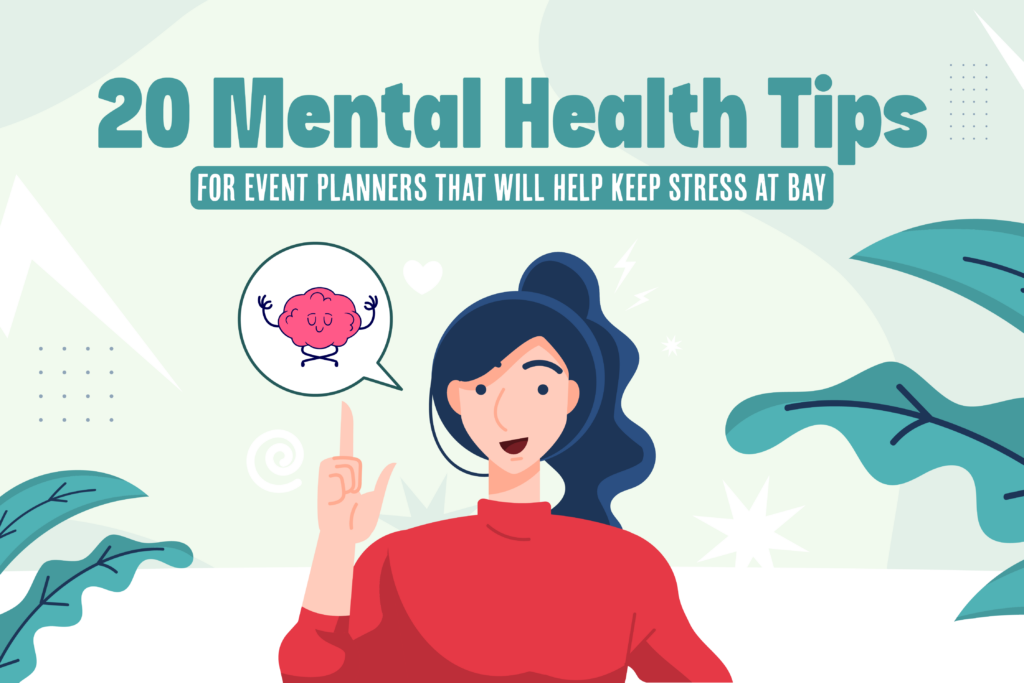
Mental health challenges are on the rise and are affecting people’s personal and professional lives. In an industry like event planning, where one has to deal with multiple stakeholders and vendors or multitask several things simultaneously, finding helpful mental health tips for event planners and having balanced mental health is paramount.
After all, event planning is considered the third most stressful job in the world. According to a recent PCMA report, more than one-third of event planners reported feeling exhausted and burned out during work. Event professionals need to take care of their physical and mental well-being while successfully planning and executing an event.
This article provides a comprehensive list of the best mental health tips for event planners to help them stay calm and stress-free during chaotic schedules.
The Importance Of Mental Health Awareness For Event Planners
Mental health relates to a person’s emotional, psychological, and social well-being. It affects how people perceive and react to the external world. Poor mental health negatively affects one’s ability to handle stress, maintain a regular daily routine, and strengthen relationships.
Similarly, mental health is crucial to event planners’ lives and impacts how they manage their events. Event planners face numerous mental health challenges, like managing deadlines, planning and confirming budgets, juggling clients, suppliers, and teams, and the overall expectation of consistently delivering a unique B2B event. These challenges almost always come at the same time, thus causing fatigue and burnout.
Let’s understand the varied challenges event planners face at work and how sound mental health is essential for better mental well-being.
- A report by the PCMA showed that 74% of event organizers attributed burnout to poor work-life balance. The constant demand for multitasking overwhelms our cognitive abilities for decision-making, memory retention, and problem-solving, all of which event organizers require.
- Burnouts and work-related anxiety add to rising stress levels, which negatively affects an event planner’s creative abilities, making them run out of ideas for their event and leading to frustration.
- Worsening mental health challenges can spill over into an event planner’s personal life, which takes a toll on their personal relationships. If left unchecked, these problems can translate into long-term psychological and physiological issues, such as isolation, self-neglect, and depression.
- Sleep deprivation also becomes a gnawing problem because of mental health neglect. According to the University of Gloucester, event planners pull in around 18 hours per day, which can severely impact their natural sleep cycle and lead to permanent physiological damage in the brain.
Therefore, adopting mental wellness practices can solve all these problems and improve event planners’ ability to organize successful events. The importance of embedding mental well-being practices cannot be overstated, as even in 2024, there is a considerable social stigma around mental health in the event industry. Many event planners are still reluctant to acknowledge their deteriorating mental health, let alone seek professional help.
Similarly, small organizational changes, such as flexible work schedules, supportive work environments, mental well-being workshops, and promoting self-care, can significantly address and mitigate event organizers’ mental health challenges.
Therefore, it is paramount to not only acknowledge the mental health problems pervading the event industry but also proactively tackle this issue by adopting mental wellness practices into the process of event planning.

Let’s explore the 20 best mental health tips for event planners that you can adopt to improve your overall well-being and create successful events.
20 Best Mental Health Tips For Event Planners
We have understood why mental health is essential and relevant for event planners. Now, let’s understand the practical ways to adopt mental well-being practices in every step of the event planning process so that you, as an event planner, can enjoy curating great events with energy without feeling overwhelmed and exhausted.
1. Mindfulness & Meditating Activities
Mindfulness is an approach to accepting the present moment without judgments or thoughts. It helps the mind stay focused and distances one from negative emotions.
Event planners can practice mindfulness by breathing exercises whenever they feel overwhelmed or anxious. Slow breathing lowers heart rate and stress hormones, making you feel calmer and collected. You can also practice mindfulness by focusing on a single immovable object and directing all your energies towards that object.
Meditation practices like mind-body awareness exercises can also help reduce stress and boost morale, energizing you to work on your event planning. You can practice meditation during your breaks or whenever you’re anxious. Taking breaks at required intervals helps you focus on your tasks without negative emotional baggage.
Overall, mindfulness and meditation are some of the best mental health tips for event planners. They should routinely adopt mindfulness and meditation during their event planning sessions and add these practices to their event itinerary, allowing guests to feel relaxed and focused.

2. Outdoor Activities
Participating in outdoor activities can boost your mental health and will make you feel refreshed and energized. Activities like hiking, outdoor fitness classes, or simply taking a walk outside all contribute to improving both mental and physical well-being.
Numerous studies prove that engaging in outdoor activities lowers stress levels and helps de-clutter your brain so that you can get back on track with a focused and organized mindset.
Thus, as an event planner, you can engage in frequent outdoor activities whenever you’re overwhelmed to wind up and detoxify your brain. Participating in outdoor activities can help you blend with nature and feel energized.
3. Flexible Schedules
Adapting customizable and flexible work schedules can help you, as an event planner, to align your event-planning activities with your choice of schedule. You can break down your work into smaller tasks, make time for meditation or mindfulness sessions, or even allot specific times to take an outdoor walk.
Sabina Osorio, Marketing Director, TED Conferences, suggested a radical tip for event organizers, and that is to “make our work the least interesting thing about us and focus on fueling our brains, our bodies, and souls first.” In doing so, she highlights that your work performance improves as you become a more balanced and holistic person, courtesy of investing in yourself. By immersing yourself in a flexible schedule customized to your comfort and improving your work-life balance, you can work without feeling distressed, thus enhancing your mental well-being.

4. Dedicated Quiet Spaces
Ensure that there are designated quiet spaces for you to take refuge when work gets too overwhelming. Amidst the hustle and bustle of an event, everyone needs a quiet zone to collect their thoughts and get disconnected for a while. These spaces help reduce stress levels by allowing you to calm yourself and focus on your breathing. As an event planner, you can practice meditation or mindfulness in this space.
5. Delegate Unimportant Responsibilities
This tip is for event planners like you, who have a lot of tasks that are irrelevant to you. Tasks like picking up event signage from the printer shop, cleaning up the attendee contact list, or sourcing a list of viable staffing agencies qualify as small errands that can be delegated to some other person.
Your job as an event planner involves mental labor related to planning and executing a B2B event that can achieve its goals. Everything else can be delegated to your juniors or volunteers to free up your mind to focus on the creative aspects of the event.
As an event planner, you should focus on work-life balance to improve your mental well-being. As one of our respondents, Dale Hudson, Creative Event’s Director, Enhance Events Ltd., gives her advice: “At the end of the day, it’s up to individuals to establish those boundaries themselves. That means talking to your employer when the workload becomes too much and being okay with saying no to additional projects when you’re already stretched thin.” She also emphasizes that “open, honest conversations are so important here. Communication must be strong so you don’t get overwhelmed by the constant juggling.”.
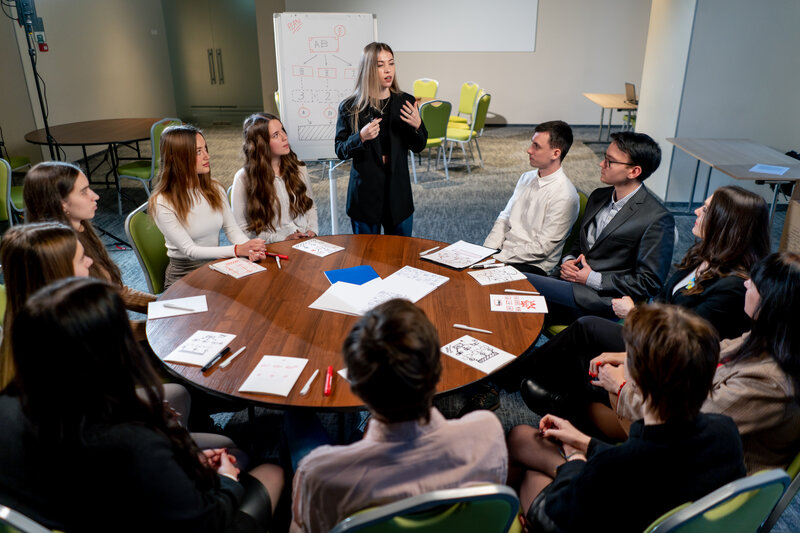
6. Have a Personal Backup For Your Work
The importance of a healthy work-life balance is not limited to your life after working hours but extends to during work hours and how you can manage your work to serve you. For instance, the recommended amount of time a person is required to rest between work is an uninterrupted 30-minute lunch break and 10-minute intermittent breaks if you’re constantly working for 2 hours or more. Taking breaks at regular intervals to unwind your mind is needed to refocus and reorient your cognitive abilities for better efficiency.
Therefore, during rush hours, whenever you’re taking breaks, you should assign someone to cover your tasks. Event organizers usually have the most work pressure and high stress levels when the event is approaching. For better mental health, ensure you have someone to take up your tasks whenever you take a break. A planned collaboration of your work will ensure that the process remains smooth and everyone has better mental well-being.
7. Write Yourself Positive Affirmations
Event planning can get grueling and intense, leading you to fail in some tasks. The intense pressure of work, along with the negative emotions associated with failing to meet the work requirements, can be taxing on your mental health. Even going through nerve-wracking meetings can have adverse mental health challenges for your overall well-being.
It is paramount that you don’t become harsh on yourself for your failures. Write yourself positive affirmations that you are capable, strong, and resilient. These affirmations are not just coping mechanisms to pass through a tumultuous phase at your workplace; you can practice these even during regular times.
Speaking positive affirmations about yourself can boost your self-confidence, help you take on challenging tasks, and improve your overall mental well-being.

8. Join A Mental Health Support Group
Medical News Today states that humans are social beings, and socialization is a great way to improve physical and mental well-being. Event planners are surrounded by people who collaborate to create a successful event. However, at your workspace, your social interactions are managed by an artificial routine that controls and directs them to achieve event goals.
Joining a mental health support group with your work colleagues or others can help you to escape that routine and interact naturally with others. You can vent your frustrations at work, engage in constructive criticisms with your colleagues, or talk about your personal lives. Moreover, your companionship for a colleague to join these support groups is one of the best mental health tips that you can provide for event planners. Understanding the shared problems and coming to a solution by talking and listening to your peers is the healthiest way to ease your mind.
Another great way to enhance the value of these support groups is to provide mental health resources that will act as a guidebook to help event organizers navigate the mental health challenges they face at work.
9. Automate or Digitize Mundane Tasks
Event planners can adopt the motto, ‘Work smarter, not harder,’ when facing work pressure. Utilize event management tools to organize your event itinerary and automate routine tasks. Adopting event management software will free up your time and let you focus on things that require your skillset. Software like this can monitor real-time activities of your event and can flag issues that require your attention. With this, you no longer need to waste your time inspecting every aspect of your event.
With new AI tools, you can automate and digitize information conveniently. For example, you can use AI tools to convert disorganized information into spreadsheets, like a list of prospective vendors or an attendee list.
For more information on event-related apps, check out this blog: “20 Different Event Networking Apps to Look out for in 2024” and “7 Best Conference Apps: The Must-Have Tools for Event Attendees”.
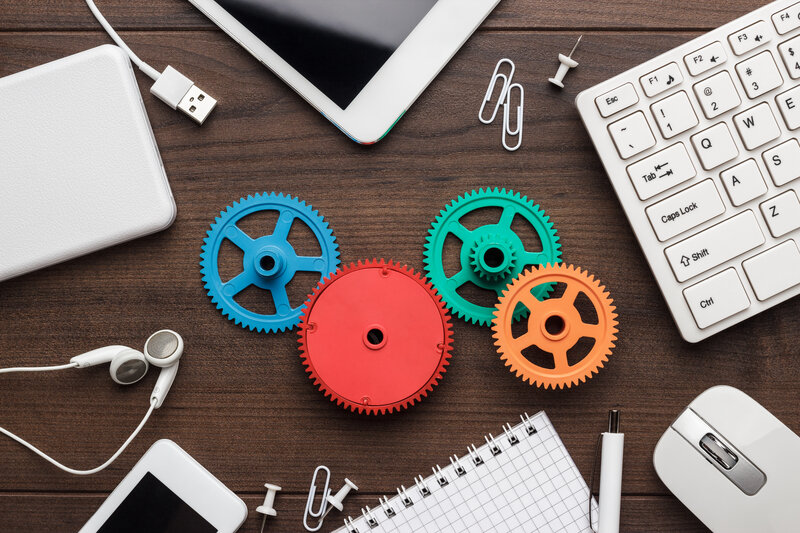
10. Promote Nutritional Well-being
Eating nutritious foods can boost your physical and mental health. Choose balanced meals that cater to your dietary preferences. As an event planner, you must consider that the food is nutritious and made with fresh ingredients.
For example, sugary drinks and snacks lead to fatigue, deplete energy, and increase stress. Therefore, provide healthier options like smoothies or fruits as snacks that sustain everyone’s energy levels.
11. Take Adequate Breaks
When your event planning tasks become hectic, take small breaks to refresh your mind. Take a walk, practice meditation, or do anything that shifts your focus from work. A constant exposure to work-related activities slowly depletes your energy and reduces concentration levels. Taking breaks whenever you’re feeling exhausted can help your mind take a pause. Returning from such breaks can help you see patterns or connections in your work that you might’ve missed previously, helping you perform tasks efficiently.
For example, when your gaming setup heats up after running for a long time, you turn it off so that it can cool down and perform better. Similarly, your brain needs to pause when it is overloaded with information it can’t process so that you can handle your task better without exhausting yourself.
Sabina Osorio reiterates this point by emphasizing how to “book yourself” for personal self-care. She explains that, just as finance people treat themselves first whenever they get paid, event organizers should also book their precious time exclusively for themselves. They can spend that time hanging out with friends, taking a walk, or playing a sport. Sabrina highlights the value of taking time to break free from your work routine and having a healthy work-life balance to focus on your mental well-being.

12. Engage in Self-Care Activities
Self-care is essential for mental and physical well-being. If you’re an event planner, ensure you have scheduled exclusive personal time for yourself, even if your work schedule is hectic. During that time, you can focus on activities that help you shift your focus away from work, like yoga sessions, jogging, gym, meditation, enjoying a massage, or simply hanging out with your friends. By prioritizing self-care, you nurture your emotional and mental well-being.
Dale Hudson highlighted the importance of engaging in self-care activities to stay balanced. She shared how activities like pilates, yoga, and meditation have been game-changers, while apps like Insight Timer offer free meditations on the go. She also suggested how to take care of yourselves during an event: “At events, the same self-care rules apply to the team: get as much sleep as possible, stay hydrated, and eat as healthy as you can.”
Dale also supports the shifting culture of perceiving ‘wearing stress as a ‘badge of honor’—at least in some organizations.
13. Set Realistic Event Goals & Expectations
As an event planner, knowing you cannot do everything you want is crucial. Planning and executing an event in 2024 requires being unique and constantly pushing boundaries. This creates pressure to outperform your competitors and yourself, leading to workplace mental health challenges.
Moreover, overpromising or demanding arbitrary expectations will make your event-organizing job more difficult. Instead, set realistic event goals that you can work with and deliver without putting too much strain on your mental health. Understand your capabilities and your available resources to plan a B2B event.
Take, for example, the advice of Ingebjørg Blomlie Müller, Festival Manager at Vinjerock AS, who says, “Be mindful and realistic with yourself in what your limits and needs are. Make sure to give yourself office hours and stay by them. When you sign a contract on a new project, make sure to put away enough time on your own calendar and make sure not to overschedule yourself.”. This approach saves you from the immense work pressure when you oversell your abilities.
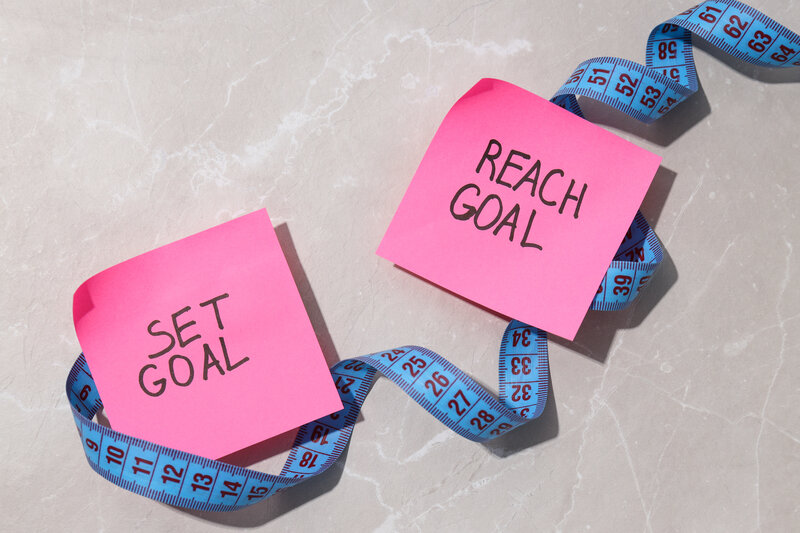
14. Ensure Adequate Sleep
The recommended hours of sleep for any adult is 7-8 hours. However, it takes a lot of work for an event planner to get that amount of sleep daily. Even if you can’t get 8 hours of sleep, you can still get quality sleep by creating and maintaining a sleep schedule, which means you go to sleep and wake up at the same time. Limit screen time to at least 1 hour before bedtime to avoid eroding your natural sleep state. If you must use your devices, use authentic blue light-blocking screens.
Sleep deprivation can be extremely harmful to your mental health and physical well-being. No matter what, ensure you get enough sleep to function correctly and maintain your mental well-being.
15. Limit Alchohol Consumption
Many B2B events feature alcoholic drinks as a means of relaxation and leisurely activities. Indeed, it helps event organizers unwind after a long day of managing endless conferences and sessions, and some might consider this a healthy approach to achieving work-life balance. However, excessive alcohol consumption can impede proper cognitive functioning, disruptive behavior, poor decisions, and other health risks.
Therefore, as an event organizer, you should implement steps to control alcohol consumption by other event planners as well. Since you are responsible for handling situations at your event, make sure that you limit your alcohol consumption, at least during the event.
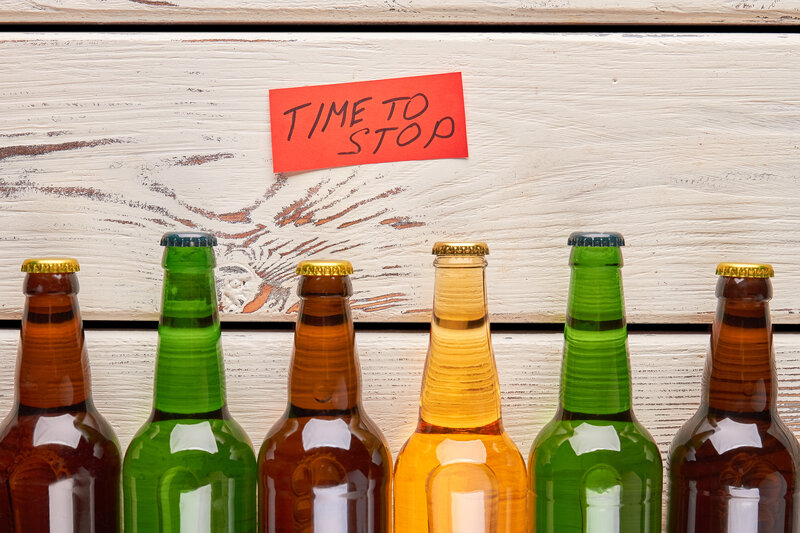
16. Design Mindful Spaces
While planning your event, design and create mindful spaces to relax. These spaces must be quiet, have comfortable seating and natural lighting, be separate, reachable by walking, and be filled with greenery. Creating these spaces is a healthier alternative to a bar or restaurant for everyone to relax.
For example, imagine from an attendee perspective that after a day of continuous event sessions, you find a place that offers some quiet time and healthy snacks. You go there to sit and relax while reading a book under the natural lighting and peaceful space. Similarly, these spaces can help you, as an event organizer, unwind during your event management. This simple approach in design can help reduce your stress levels and have a healthy mental well-being.
17. Build a Collaborative and Supportive Work Environment
Your job as an event manager is not just to deliver a great B2B event to your attendees but also to create a work environment and network of contractors who are all emotionally invested in the event. This way, everyone in the organization can support and collaborate with each other’s work in a professional environment.
Creating a supportive environment eliminates the unhealthy competition that breeds toxicity and animosity among employees. If everyone’s goal is aligned with each other and all their work gets adequate recognition, they can all feel motivated and energized to perform their duties by collaborating. Additionally, event managers like you can offer mental health resources for your employees to help them understand the value of proper mental health in a work environment.
Dale Hudson states, “Events often come with long hours, which can pile on team stress. One of the most basic but crucial things to ensure is that everyone gets enough rest, stays hydrated, and has regular breaks for food”. She enumerates further that if these basic needs are unmet, emotions can run high, leading to mental fatigue. Ultimately, she stresses that “As a leader, empathy is essential. It’s important to make sure everyone feels like they’re part of a supportive team where members have each other’s backs. That sense of belonging and support is key to keeping energy and motivation up throughout the event.”

18. Have Mental Health Meetings & Workshops
Even in 2024, going to therapy or attending mental health sessions is stigmatized in our society. Even so, event planners must not shy away from seeking professional help. Event managers should implement mental health meetings and workplace workshops to educate their colleagues and others about the importance and benefits of mental well-being.
Arrange a session discussing how adopting mental health practices can improve one’s emotional and physical state and boost work productivity. As an event manager, ensure that you break stigmas surrounding therapy and talk about mental health in everyday conversations. Encourage everyone to check on each other when they feel overwhelmed and build a supportive relationship.
19. Talk to a Therapist
This point requires no explanation; whether you are an event planner or not, talking to a therapist is a healthy way to manage your emotions. Event planners like you face tremendous workloads and pressure to meet deadlines. All of these generate negative feelings that need to be unburdened, or they might impact your mental health.
In 2024, you can see a therapist after work or even organize therapy sessions for employees at your company. You can even take therapy sessions online if you don’t feel comfortable doing them one-on-one. Talking to a certified therapist can help you understand your emotions and thought processes, making you feel in control of them and the situation. It can enable you to tackle issues that have been bothering you at work or in your personal life.
Many event planners may feel uncomfortable sharing their emotions with their loved ones, so a therapist who can listen objectively and give suggestions is always a better alternative. Moreover, you can ask your therapist to provide you with mental health resources to help you in this journey.

20. Practice Gratitude
Gratitude is a powerful practice that can significantly improve your emotional and mental well-being. Allot a specific time at the end of every day for self-reflection and gratitude for everything you have. You can be grateful for simple things like your job, the food you made, or the beautiful view.
Moreover, you can practice a grateful mindset by turning every work challenge into an opportunity. For instance, if a vendor is giving you trouble, you can navigate this situation by listing the person’s positive aspects and being grateful for having that person in your life to work with. That will help you develop a new perspective on the problem. By being thankful, you shift your mind to seek positivity in everything, which trains your mind to always be positive under any circumstances.
For example, practice writing a journal where you write three things you’re grateful for. These can be a new relationship, simple achievements at work, or attaining small milestones toward your event. In this way, your mind nurtures positive emotions and a healthy mind.
Key Takeaway
Follow these mental health tips for event planners to develop mental and physical well-being. Sound mental health is necessary to navigate the industry’s everyday challenges.
As we have seen in this blog, event planners can get overwhelmed by their work, so they must collectively take steps to make their job fun without mental or emotional stress. By taking care of themselves, event professionals can ensure the event takes place smoothly without compromising their health in the process.
If you want more information about B2B events or event planning in general, visit Eventible. It has reviews from event planners, attendees, sponsors, and speakers on various B2B events.

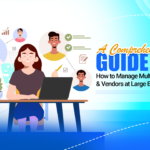
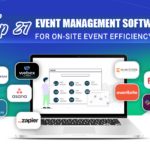

Comments are closed.